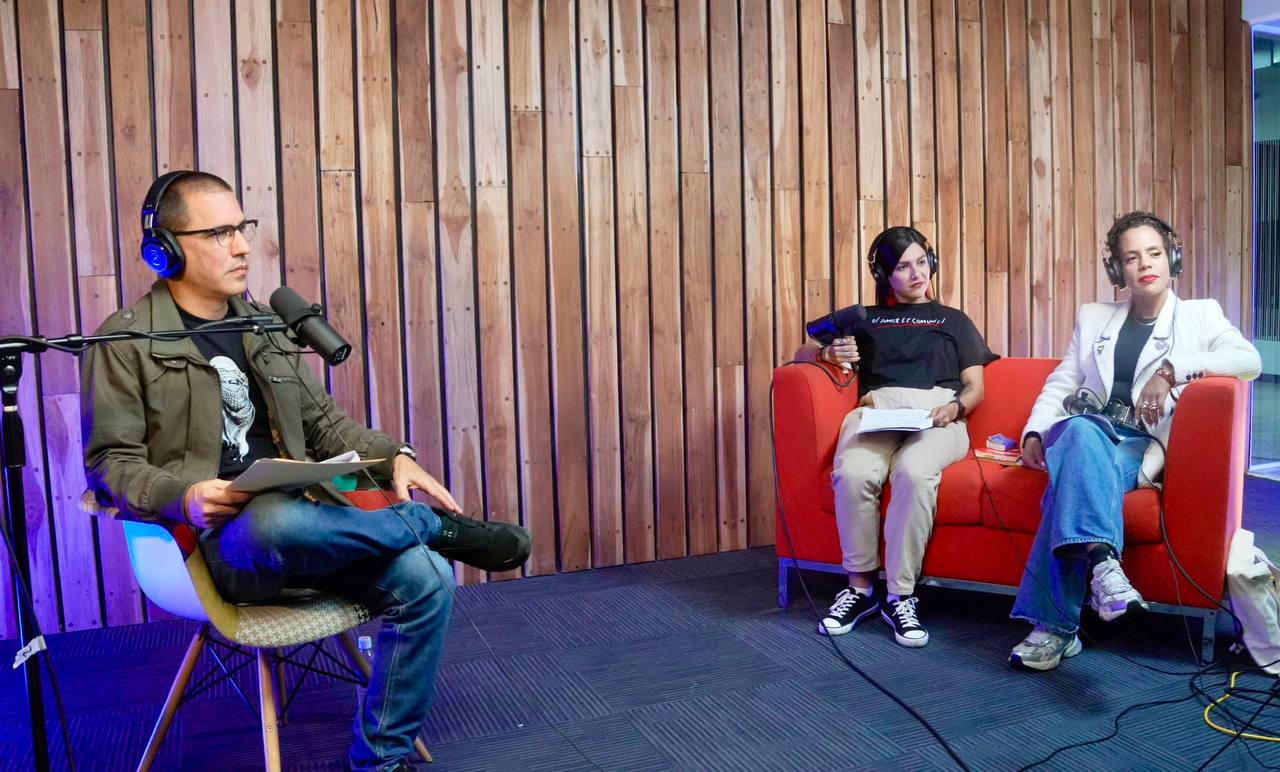Caracas, May 16, 2025 – In a new episode of Nuestras Voces podcast, the Executive Secretary of the Bolivarian Alliance for the Peoples of Our America–Peoples’ Trade Treaty (ALBA-TCP), Jorge Arreaza, engaged in a discussion on popular feminism in Latin America.
He highlighted the role of women in the region’s political causes and emphasized the need to promote women’s participation in all areas.
“I believe in equality, but in my opinion, women are more capable than men, and this is evident in the simple fact that they are capable of giving life,” he stated.
Venezuelan political leader and former Minister for Women Carolys Pérez joined Arreaza in the conversation and affirmed that women have historically faced greater obstacles and challenges in navigating the world, regardless of their social class.
“That is why the pain of being a woman is constant, but it is a pain that can be healed. It is a social pain, simply for being born a woman, and it is healed as transformation occurs and as we gain spaces of value.”
She pointed out that feminism has always been perceived as a sign of weakness and asserted that, although women have a different kind of sensitivity than men, this does not make them less important.
“Our Constitution includes banners from the social struggles of the feminist movement in the face of the persecution women have always endured, as power is directly associated with men. Yet, in our Constitution we have so many rights that we do not need to masculinize ourselves in order to move forward,” she added.
A capacity for reconstruction
Jennifer Mujica, a member of the Movimiento Futuro (Future Movement), asserted that historically women have demonstrated a capacity for reconstruction that men do not possess, even though societal conditioning imposes limitations on women.
“Women have the ability to rebuild themselves even when capitalism is sustained by inequality and aligns itself with patriarchy,” she said.
She added that in countries currently governed by the right wing, feminism is now viewed as a way for women to assert themselves through privilege, noting that much progress is still needed.
The episode also featured the virtual participation of Nestora Salgado, former senator and activist within Mexico’s Indigenous communities, who emphasized the repressive role that many governments still play toward women in positions of power throughout the region.
“The state continues to be repressive, and privilege influences women’s actions,” she said.
She recounted the political transformation she helped lead in the Mexican Senate, where she managed to promote more than 190 initiatives and rights related to women, children, migration, and enforced disappearances—efforts that allowed her to stand out in a country where women’s roles had not traditionally been as prominent as they are today.
